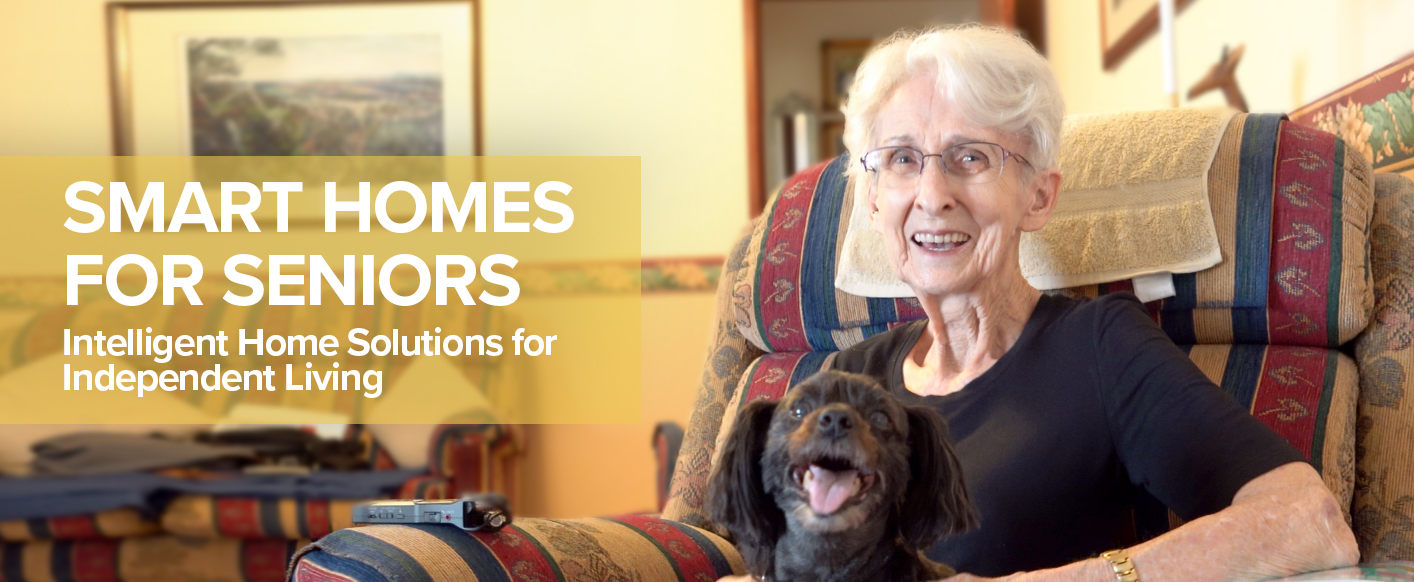Project bridges digital divide between senior and smart home technologies
February 23, 2021 11:55 pm
“From digital voice assistants to automated ‘smart’ lights and robotic vacuum cleaners, readily available off-the-shelf smart home devices can support the wellbeing and independence of older Australians, as identified by new research.”
– Monash University
People aged 65 and above remain Australia’s least digitally included group, and research has confirmed that this gap continues to widen. With COVID-19’s physical distancing measures, seniors have been at greater risk of social isolation and loneliness, which is heightened by their digital exclusion. However, a report released today on the Smart Homes for Seniors project has shown how smart home technologies can not only help older Australians to remain socially connected, but can also support their wellbeing and ability to live independently in their own homes.
The Smart Homes for Seniors project was initiated by community-based aged care provider, McLean Care. “We saw the opportunities presented by new technologies to help older people stay independent in their own homes for longer, particularly in regional and rural communities where there is often more limited access to services” said McLean Care Chief Executive Officer, Sue Thomson.
In partnership with researchers from Monash and Deakin Universities, the project evaluated the opportunities and challenges of incorporating smart home technologies into the homes and lives of older people living in Gunnedah, Tamworth and Inverell in regional New South Wales.
From the findings, researchers were able to identify the usability challenges and expectations, as well as the hopes and anxieties older people have of smart home devices.
“Older people are a marginalised demographic when it comes to the design of smart home devices and are often underrepresented in user studies,” said Monash University Project Lead, Associate Professor in the Emerging Technologies Research Lab, Yolande Strengers. “The Smart Homes for Seniors project was designed to address these research and knowledge gaps.”
Each household participating in the trial had a different suite of devices installed to meet their housing layout, lifestyles and needs. These included smart lights, robotic vacuum cleaners, smart kettles, tablets, and voice assisted speakers.
Associate Professor Ben Horan from Deakin University’s CADET Virtual Reality Training and Simulation Research Lab
explained how his team “recorded usage data from the devices to identify how often they were used, at what times, and using what functionalities. We were also able to understand the kinds of voice requests and challenges with voice activation that older people faced when engaging with Google Home functions.”
“Participants were given the opportunity to have fun with the smart home devices, make mistakes and take their time to learn each function with technical support from the project team, creating an ideal learning environment.”
This research complemented the fieldwork and interviews conducted by Monash University which offered a unique view of the technologies from an older person’s perspective. McLean Care also collected user reviews on each of the devices trialled and published these on a website to help guide other older people who may be considering using similar devices in their own homes.
“This project has dispelled many of the myths and stereotypes about older people and their willingness and ability to engage with new technologies. With exponential growth in the types of technologies available over the last few years, it’s a natural progression for older people to be involved in using them to support wellbeing and independence” said McLean Care CEO Sue Thomson.
The final report provides a range of insights and recommendations, including the potential for offering smart home devices as optional extras for in-home services, the importance of providing older people with opportunities to learn new digital skills, providing affordable and reliable internet services, and designing and installing smart home devices that support older people’s independence, mobility, memory and social engagement, such as the use of video-calling to stay connected with loved ones during the COVID-19 pandemic.
The final report provides a rich insight in to how, at an average age of almost 82 years old, the participants in this trial have demonstrated their ability to adapt, modify, integrate, embrace or exclude technologies in their daily lives.
The project was funded by the Australian Government Department of Health through a Commonwealth Home Support Program (CHSP) Innovation grant.
To learn more about the Smart Homes for Seniors project, please visit: https://intelligenthomesolutions.com.au/
Download the final research evaluation report: Click here


Stay connected and join the conversation with us